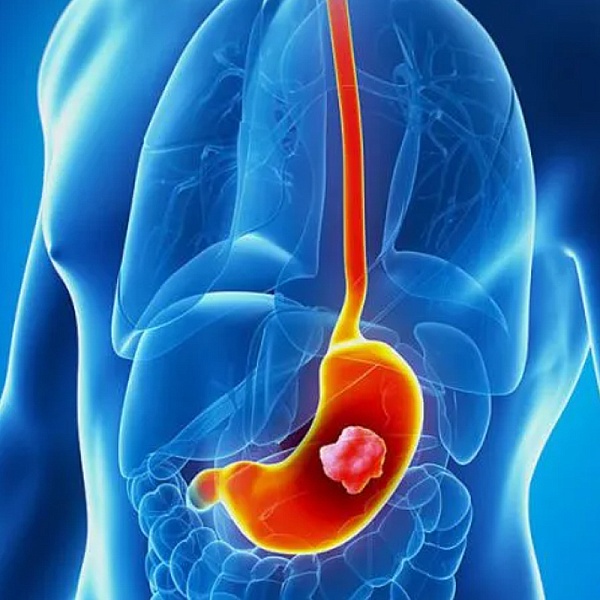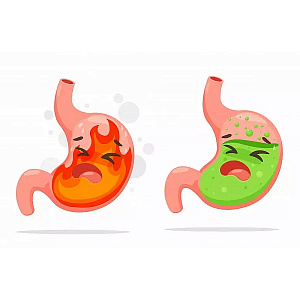Astonishing research
60% of people over 50 years old suffer from low stomach acid!
Stomach and intestines deterioration is a very common problem with age. There seems to be nothing that can be done about it. The constant troubles with flatulence, bloating, gastritis and poor food digestion is something that every aged person has to face.
But proper food digestion is the key to health at any age. Poor digestion, food assimilation leads to big problems with metabolism. There are diseases of the intestines, kidneys, cholesterol plaques in the vessels.
One of the most important elements that ensure the normal functioning of the GI tract is acidity. The acidic environment of the stomach is provided by the hydrochloric acid contained in it. This acid is produced by special cells of the mucous membrane.
The acidic environment gives opportunity for work of pepsin, proteins decomposition, the normal functioning of sphincters and protective mucus.
Atrophic gastritis, or the more correct medical name, gastric mucosa atrophy, is an irreversible process in which gastric mucosa cells producing gastric juice and hydrochloric acid die.
According to MD Takumi K. et al. (2000), more than 60% of the examined patients faced the problem of atrophic gastritis with age.
Dr. Krasinsky writes about the same. In his study, 31.5% of people over 60 experience atrophic gastritis.https://pubmed.ncbi.nlm.nih.gov/3771980/
What is it dangerous to have low stomach acidity?
Inactive parietal cells produce insufficient hydrochloric acid. As a result, pepsinogen is not converted to pepsin, and proteins enter the intestine undigested.
Atrophy of the protective cells of the gastric mucosa develops, which should protect it from an acidic and aggressive environment.
The pyloric sphincter of the stomach, which closes under the action of the acidic environment in the stomach, remains opened, provoking intestinal contents reflux into the stomach, nausea and heartburn.
The undigested stomach contents go into the intestines, disrupting the work of bile and pancreatic ferments.
As a result, the work of the GI tract is completely disrupted, which causes not only nausea, heartburn, flatulence, but also severe metabolic disorders.
These results are truly astonishing! After all, this means that people's digestive problems are able to solve! Moreover, they can be solved quite simply. Instead of the traditional fight against decreased stomach acidity, we need to increase the amount of hydrochloric acid in the gastric juice!
How to normalize stomach acidity?
To maintain health and vigor, Dr. Wright, a well-known American researcher, recommends increasing the acidity of the stomach by taking hydrochloric acid solutions.
His recommendations are very similar to those of academician Bolotov, who developed a unique complex of mineral and organic acids - Bolotov Balsam. Balsam intake makes it possible to restore the work of the stomach and normalize food digestion at any age. At the same time, strong inorganic acids, absolutely necessary for the human body, are contained in the Balsam in a safe form and concentration. While taking the product according to the rules, they will not cause any harm to a person, but only benefit.
How to take acids to improve digestion that comes with age?
Most people have weak acid secretion that has developed over time with age. The protective functions of the gastric mucosa are weakened and a sharp increase of stomach acidity environment can lead to an exacerbation of gastritis.
Therefore, the course of Bolotov Balsam intake begins with a few drops diluted in 100-200 ml of water, gradually bringing its amount to the standard recommended dose of 1 tsp. for 100-200 ml of water. You will feel freshness and improved digestion in just a few weeks, but full recovery of the gastric mucosa and its productivity may take several months.




